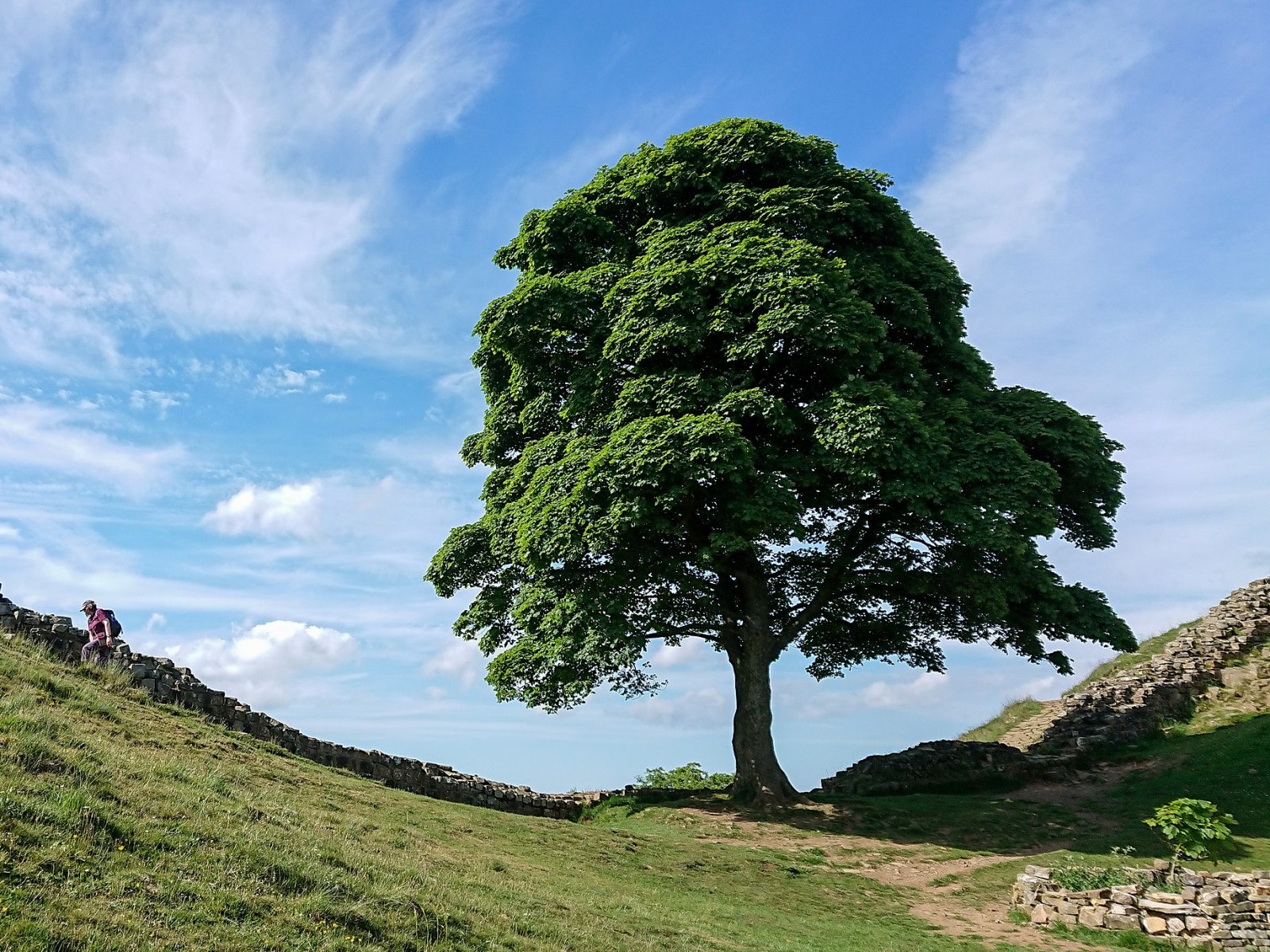Acer pseudoplatanus
Sycamore
Species Tolerances
- Drought Tolerance: Medium
- Shade Tolerance: Yes
- Waterlogging Tolerance: Low
- Frost Tolerance (trees from warmer climates may be frost tolerant, but their flowers may not be): Yes
- RHS Hardiness: H7
- Optimum Conditions for Growth:
A canopy tree of open woodland, growing best where there is not too much shade. Will grow in all soils except the heaviest clay or poorest sandy soil. It tolerates wind and salt, so will grow in mountainous areas and by the sea where other trees will not. Can be coppiced and pollarded and makes an attractive avenue tree especially in built up areas as it tolerates pollution. Note that it seeds freely, so young, unwanted seedlings will need to be weeded out. - Susceptibility to Pest/Disease:
May be susceptible to Phytophthora ramorum

The Sycamore Gap Tree or Robin Hood Tree [was] an Acer pseudoplatanus standing next to Hadrian’s Wall in Northumberland. Crag Lough and Once Brewed village are nearby/ Gordon Leggett/ https://creativecommons.org/licenses/by-sa/4.0/deed.en
Service to Pollinators
- Summary of Service to Pollinators:
Although only flowering for a few weeks, it produces abundant nectar and pollen. The short flowers are visited by all insects. Can be one of the major producers of spring honey. Also produces much honeydew when aphids are active - Nectar Value to Pollinators: 3 (of 0-3)
- Honeydew Value to Pollinators: 3 (of 0-3)
- Pollen Value to Bees: 3 (of 0-3)
- Flowering Period: May
Risks
- Human Toxicity: Non-toxic
- Livestock Toxicity: Toxic
- Invasive Risk: Yes
- Suckering: No
Products
- Edible Fruit: No
- Edible Leaves: No
- Edible Sap: Yes
- Edible Seeds: No
- Honey, major source in UK: Yes
- For any medicinal potential, see 'Further Details' below.
- Timber: Yes
- Livestock Fodder: No
- Other Products:
Timber is hard, stable and strong, good for making kitchen utensils. Woody biomass.
Utility
- Nitrogen Fixation: No
- Organic Matter Accumulation: Yes
- Phytoremediation: Insufficient Data
- Deacidification: Insufficient Data
- Windbreak: Yes
- Soil Erosion Control: Yes
- Shade or Shelter: Yes
- Plant Support: Insufficient Data
- Integrated Pest Management: Insufficient Data
- Wildlife Value: Yes
- Wildlife Value Summary:
Biodiversity value fairly low but high biomass of aphids, providing large amounts of honeydew for all pollinators and seed for food for a large range of birds and mammals. - Graduated Nativeness Classification ⓘ: 2 (of 1-10)1. Historic Native
2. Historic Introduction
9. Neutral Introduction
Further Details
Pioneer. Timber noted to be hard, stable and strong. Good silvicultural practices resulting in straight poles can produce excellent yields of high-quality timber. Fast-growing and tolerating a wide range of conditions even maritime exposure, can result in displacement of native flora. Ideal for timber production but not so good in mixed woodland.